- Home
- Alex Irvine
Tom Clancy's the Division Page 3
Tom Clancy's the Division Read online
Page 3
She wasn’t going to think about that right now.
When they got to Independence Avenue, going past the Department of Agriculture building, a Division agent ran into view from the south. He saw them going up to the intersection of Twelfth and waved to get their attention. “Get out of here!” he shouted.
They froze, not sure what to do. Get out where? Which way?
“Whoa,” Wiley said. “Look at that.”
He was pointing to the south, and when Violet looked that way she saw a swirling yellow cloud over Hancock Park.
Yellow powder. They’d heard about it. They didn’t know what it was, but they knew it was bad.
“Man,” Wiley said. The Division agent was coming toward them. “We were just there. We’d be . . .”
He didn’t have to say dead. They all knew.
“Well, you don’t want to go down there now,” the agent said. “Where were you headed?”
He took his helmet off and used his sleeve to wipe sweat from his forehead and his beard. Violet remembered her dad’s beard. The Division agent was a tall, lean white guy with dark hair and streaks of gray in his beard, just like her dad’s.
“We’re going to the Castle,” Shelby said.
“You mean the Smithsonian Castle?”
“Yeah,” Noah said. “We used to live down at the hotel, but it flooded.”
The Division agent nodded. “Yeah, that was a good spot. Who knows, maybe you can get back there when the river goes down.”
“You think it will?”
“Sooner or later, yeah.” The agent put his helmet back on and looked west. “It’s going to be dark pretty soon. You ought to get home. This isn’t a place to be out after dark. And listen. Whatever you do, don’t go anywhere down that way.”
“Like forever?” Saeed asked. “Is it radioactive or something? I read that uranium powder is yellow.”
“No, that’s not it. And I don’t know about forever, but let’s just say you don’t want to go down there anytime soon. I’ll try to get the JTF over there to set a safe perimeter, but they’ve got a lot on their hands.” The agent got a faraway look on his face. After a moment Violet realized he was listening to something in his earpiece.
“Gotta go, kids,” he said. “Seriously, get home.”
“We will,” Violet said. She shifted her bag full of cattails and greens to her other hand and flexed her fingers.
“Hey, mister. I mean, Agent,” Ivan said.
“What’s up, buddy?”
“Do you know my dad?”
“Who’s your dad?”
“Aurelio Diaz. He’s a Division agent, too.”
The agent cracked a smile. “Yeah. I do know him. We went out on a bunch of missions together right when everything was falling apart. He went up to New York in . . . January, maybe? February? Things were a lot worse up there than they ever got here. Far as I know he’s still there.”
“So he’s not dead.”
“Little man, I make no promises. But the last I saw him he was alive and well, and I haven’t heard any different since.” The agent looked them over as a group. “You guys stick together.”
He jogged northwest, back the way the kids had come.
“See?” Ivan said. “I told you our dad was a Division agent.”
“Man, that’s cool,” Wiley said.
Amelia was watching him go. “He’s really alive.” She was trying not to cry, but it wasn’t working.
Violet tried not to be resentful. “Come on,” she said. “We have to get home.”
* * *
• • •
Junie, one of the older women who ran the Castle settlement, saw them coming while they were still out in the garden. The Smithsonian Castle was straight ahead, with two art museums flanking the garden, one on either side. Most of the garden was dug up and replanted with vegetables. Chickens clucked their way around, pecking up bugs and whatever else chickens ate.
“I was starting to wonder if you were coming back,” Junie said. “But looks like you got what you were after. Let’s get those into the kitchen. Ooh, cattails,” she added when she got a closer look at their bags.
“We saw a Division agent!” Ivan said. “He said he knew our dad.”
“A Division agent?” Junie looked out over the garden to the south. “Is that something to do with the yellow cloud down there?”
They all looked. The cloud was gone now. Violet wondered if the yellow powder was dangerous even if just a few little particles of it got on you. The wind was blowing straight down the river, so maybe none of the powder had come this way. But thinking of that made her want to take a bath right then, and find some new clothes.
Junie was looking at her. “Violet. What’s the matter?”
“The Division agent told us the yellow powder was dangerous. He said we couldn’t go down there anymore. Like everything down there is poisoned or something.” Violet didn’t mean to, but she kept talking. “And we were just there!” she blurted out, and then she was crying.
“Hey, now, hey.” Junie folded Violet into her soft old-lady arms. The rest of the kids gathered a little tighter around them. “It’s not easy being a kid right now,” Junie said. “Hell, it’s not easy being anybody. But you guys are doing all right.”
She let Violet cry herself out. It didn’t take long. Violet didn’t like showing other people how she felt. But this day had been too much even for her. Nothing really bad had happened, but seeing the hotel, and then seeing the yellow powder . . . knowing that, more and more, there were places they couldn’t go because they might get hurt. She felt like everything was closing in, like sooner or later they would have nowhere to go.
But she couldn’t say all that, so she just got herself under control and wiped her eyes. Junie let her go. “Why don’t you get all those greens to the kitchen, like I said,” she suggested. “Then you ought to get something to eat. Bet you’re hungry after being out all day.”
“Yeah,” Shelby said. As a group the kids trooped toward the Castle and went inside. Violet noticed they were still gathered around her, like they were protecting her. She didn’t want them to feel like they had to do that, but it also made her feel good. They were there for each other.
5
APRIL
“April Kelleher,” Koopman said. He smiled broadly. One of his front teeth was stained brown. “Of course.” He stood and reached to shake her hand. “It is a pleasure, and also a surprise, to finally meet you.”
“Couldn’t be that much of a surprise,” she said. “You invited me here.”
“That was . . . what, three months ago? I had given up hope.” Koopman sat again. He turned off his computer and closed the notebook he’d been writing in. Then he looked up at April, gesturing to a chair. “Please, sit. I’m sure we have a lot to talk about. Sorry for the location. I know it’s difficult to get to. I have my reasons for being here, but I felt bad to inflict this problem on you.”
She dragged an office chair over and sat. “It wasn’t that bad. All I had to do was watch entrances into the Dark Zone for months, figure out the best approach, dodge some bullets, and presto, I’m here.” She paused. “And now I have some questions.”
Koopman spread his hands. “Fire away.”
“First one is, how did you know to leave that wanted poster?” She took the poster out of her bag and unfolded it. A bad photocopy of her face over the question: HAVE YOU SEEN THIS WOMAN? Below that, a phone number. She’d almost had a heart attack the first time she saw it, when she realized that meant someone was watching her chase the clues in the New York Collapse book. Then when she solved the phone number puzzle she understood that it wasn’t just anyone watching her: It was the author himself, Warren Merchant. Whose real name was Roger Koopman.
“I was watching you,” he answered promptly. “I had some people out observing cer
tain locations. I knew that people would only visit them if they had discovered some of the bread crumbs I left in the book, and you were the only one they reported seeing. So then I started trying to keep an eye on you, but it wasn’t easy. You moved around, and then there was the unfortunate business in the condominium.”
Unfortunate business. He meant the time April and two of her friends, Miko and Drew, were kidnapped by convicts escaped from Rikers Island. A Division agent tracking the gang found them and freed them after a firefight, but both Miko and Drew were killed. So was the agent. That wasn’t the only bad thing that April had experienced since the Dollar Bug first began to rage through New York . . . but it was just about the worst. Well, the second worst.
“His name was Doug Sutton,” Koopman said. “The agent who rescued you.”
“Doug Sutton,” she said. “Did he have a family?”
“I don’t know.” Koopman looked uncomfortable, like he didn’t want to think about Division agents being people with families. April waited for him to say something else.
When he didn’t, she did. “Tell me about Bill.”
Bill. William Gibson Kelleher. Six years her husband, now five months dead. Bill, whom she had loved and started to build a life with and then seen shot in the street. Bill, who had given her the New York Collapse book that kept her alive during the early weeks of the Dollar Bug and ultimately led her here. She almost never said his name out loud because the name carried with it all the memories, and every time she said it out loud April was afraid she would start telling stories about him and then not be able to stop. Bill was why she’d done all this, risked her life following clues and plotting ways to penetrate the Dark Zone. The day the quarantine had been declared, she’d gone looking for her husband, and she’d seen him killed in the street outside the biotech company where he worked. That was the worst moment of her life. Since then, finding Koopman and learning the truth about what happened to Bill had become two aspects of the same quest. She wanted answers.
Koopman sighed and his chin dropped, like the conversation was going in a direction he didn’t like. “You mean why he was killed?”
Like it would be anything else, she thought. “Yes. What he was doing, why he was killed. Did it have something to do with the virus?”
“Sort of, but not in the way you might expect. Bill was part of a team experimenting with a new vaccine design. I’m not a virologist, so I won’t pretend to know the details, but the upshot is that this new design would be able to handle large numbers of mutated versions of a particular virus. This class of design goes by the designation BSAV, or broad-spectrum antiviral.” Koopman flipped open his notebook and showed April notes and drawings. She could tell they were diagrams of molecular compounds, but not much beyond that. “Before I moved into management, I was a lab scientist myself, working on water quality issues. So I keep track of things as a sort of interested party. Your husband’s company, SBGx, had significantly advanced BSAV research, and what you see here is a simplified sketch of the work other scientists have done, using SBGx’s work to prototype a design for a BSAV that would combat Amherst’s virus.”
“Amherst,” April repeated. “He created the virus? One person?”
“Hard to believe, but yes. A skilled virologist with the right tools can design both miracles and catastrophes. Amherst was very skilled. Fortunately there are surviving scientists who are just as gifted. It’s a good thing, too, because Amherst’s virus could mutate enough to begin spreading again. He designed it to do exactly that, so no single treatment would eliminate it permanently.”
Another plague, April thought. The first one had brought everything to the brink of collapse. A second—and a third, and more?—would just about surely finish the job.
“You see how important the work is,” Koopman said after a pause.
“So Bill was working on this BSAV. You think that’s why he was killed?”
“I don’t know for sure,” Koopman said. “Maybe Amherst and Tchernenko were cleaning up loose ends; maybe they were trying to delay the production of a vaccine. It was a chaotic time.”
“Were there other people killed like Bill?” April had been rehearsing these questions in her mind for months, since she’d first figured out there was more to the book than just survival advice. The whole time she’d imagined the person behind the pseudonym and considered what she would ask when she eventually found him.
“You have to understand,” Koopman said. “I was on the run, too. I wrote the book because I knew Amherst was up to something. He designed the virus alone, but you can’t do something like that without drawing at least a little interest from other apocalyptic types. They all frequent the same websites, that kind of thing. And megalomaniacs can’t help boasting, at least a little. That’s how I started to get suspicious. No one knew exactly what he was doing, but quite a few people knew he was doing something, and approved of it. They would have killed me the minute I said anything out loud. I was hoping someone would follow the bread crumbs in the book, so at least in the end someone would learn the truth about what happened.” He smiled at her. “Then when I learned you were hunting through the puzzles, I gave you a little assist.”
“The wanted poster.”
He nodded. “I thought you might want to know you were on the right track. But after I saw what happened to Bill, and some others, I couldn’t risk coming out into the open to find you. I had to wait for you to find me. And I’m glad you did.”
Glad wasn’t the emotion April was feeling. She kept her mouth shut so she wouldn’t say anything to anger Koopman, or alienate him. At least not until she had learned everything she’d come here to learn.
“Now since you’re here,” Koopman went on, “I’ve got some news for you. The broad-spectrum antiviral Bill was helping to prototype? It exists.”
“It . . .” How was that possible? “Where? Why isn’t anyone making it?”
“It’s still just a few doses. There are precious few places left where one could manufacture a vaccine. But Dr. Jessica Kandel, working in the JTF lab here in New York, prototyped a vaccine for the existing strain of Variola chimera—the Green Poison. She managed to get her design to a surviving lab in Ann Arbor, Michigan. They, in turn, have used it—and your husband’s work on broad-spectrum antivirals—to design a vaccine that will combat mutant strains of the Green Poison. And this vaccine works on every observed mutation of the disease . . . or, at least, so I am told.” Koopman spread his arms, indicating the space around them, and by extension his isolation inside the Dark Zone. “The JTF doesn’t tell me much, and I certainly am in no position to keep tabs on what people are doing in Michigan. But rumors travel as fast as anything else, and I hear through various channels that the vaccine exists, at least in a few samples.”
“In Ann Arbor.”
Koopman nodded and shut his notebook again. “The lab in Ann Arbor had some time to prepare before the virus began to spread there, so some of their lab staff had already quarantined themselves so they could continue the work.”
The idea of this vaccine was irresistible to April. Could it be true? What were they doing with it? Were things in Ann Arbor that much better than they were in New York? If they were, why was the JTF keeping people quarantined in New York? April started to realize just how distant the rest of the country had become to her. She didn’t know what was happening in Hoboken, let alone Ann Arbor, or Denver or San Francisco. She didn’t know who was president, or if there was a president. Or if there was a Congress . . . or, in the end, if there was still a United States.
“And these people in Ann Arbor,” she said. “They knew Bill? Would they know what happened to him?”
Koopman shrugged. “Maybe. They had a working agreement with SBGx. I wouldn’t be surprised if they knew him, and possibly even survived attacks themselves. But having said all that, I don’t even know if the rumors are true. They could all be wishful t
hinking. There might not be any broad-spectrum antiviral at all.”
The words were out of her mouth before April meant to speak them. “I’m going to Ann Arbor.”
Koopman did her the courtesy of not laughing. Instead he gave her a long, contemplative look, and then he said, “You’ll forgive me saying so, April—can I call you April?”
“I don’t care. Sure.”
“Okay, then. That’s insane. You can’t just go to Ann Arbor. It’s, what, six hundred miles away? Do you have any idea what has happened in all those states?”
“No. Do you?”
Now Koopman did let out an exasperated chuckle. “I hardly know what’s happening on Fourteenth Street.”
“Right,” April said. “So things might not be as bad out there. Maybe that’s why they’ve kept the quarantine on.”
“I don’t have any indication that that’s the case,” Koopman said.
“But you also just said that the JTF doesn’t really share much information with you. So you don’t know.” April stood up and adjusted her backpack. “I’ve followed this question through some of the worst I can imagine a human being would do. Now it’s spring, the virus isn’t spreading anymore, and I’m going to follow it right to the end.”
She wasn’t usually the type to make snap decisions, but this felt right. Now she knew where the truth of Bill’s work and death was. Ann Arbor, Michigan. All she knew about it was that the University of Michigan was there.
Six hundred miles, she thought. But most of it will be empty. Probably none of it will be as dangerous as the ten blocks of the Dark Zone I crossed to get here.
“You know,” Koopman said, “when I wrote that book, I didn’t think anyone would ever follow the clues all the way to the end.”
“Here’s how I feel about that book,” April said. “Probably I’m alive because of it. You know Bill gave it to me as an anniversary present? He meant it as a joke, but it kept me alive. So thanks, I guess. But then if you’d never written it—if you’d just told someone instead—I never would have needed the goddamn book in the first place. Even if they killed you, a lot of other people would still be alive.”

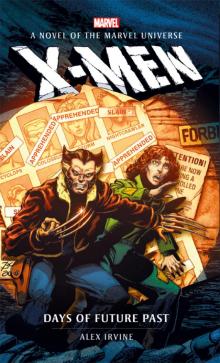 Marvel Novels--X-Men
Marvel Novels--X-Men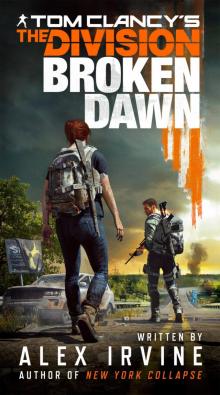 Tom Clancy's the Division
Tom Clancy's the Division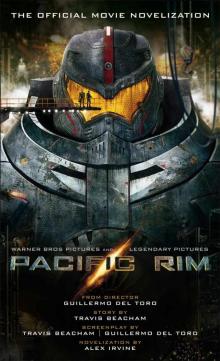 Pacific Rim: The Official Movie Novelization
Pacific Rim: The Official Movie Novelization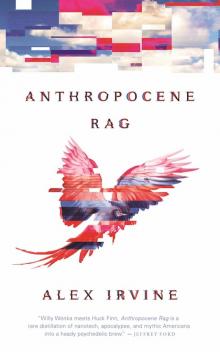 Anthropocene Rag
Anthropocene Rag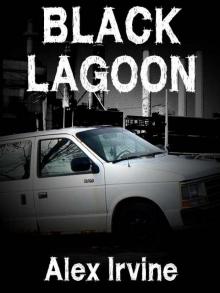 Black Lagoon
Black Lagoon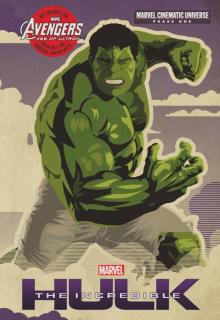 Phase One: The Incredible Hulk
Phase One: The Incredible Hulk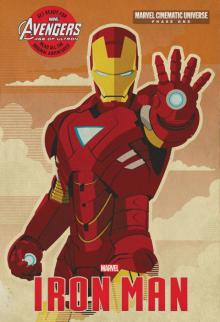 Phase One: Iron Man
Phase One: Iron Man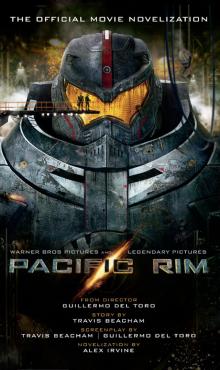 Pacific Rim
Pacific Rim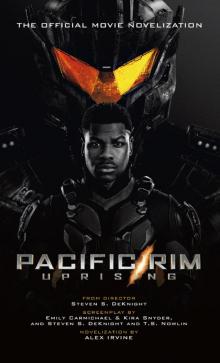 Pacific Rim Uprising--Official Movie Novelization
Pacific Rim Uprising--Official Movie Novelization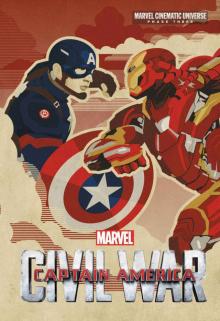 Phase Three: Marvel's Captain America: Civil War
Phase Three: Marvel's Captain America: Civil War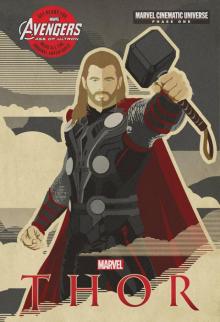 Phase One: Thor
Phase One: Thor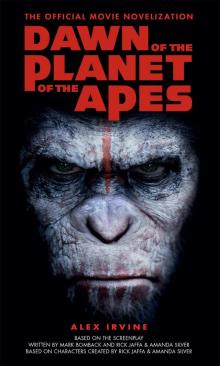 Dawn of the Planet of the Apes: The Official Movie Novelization
Dawn of the Planet of the Apes: The Official Movie Novelization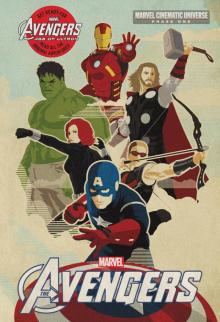 Phase One: Marvel's The Avengers
Phase One: Marvel's The Avengers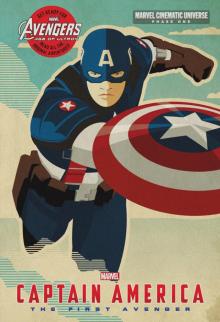 Phase One: Captain America
Phase One: Captain America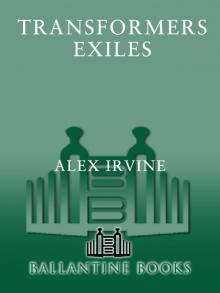 Exiles
Exiles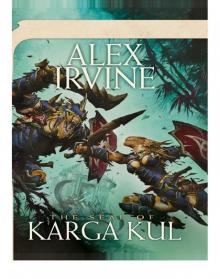 The Seal of Karga Kul: A Dungeons & Dragons Novel
The Seal of Karga Kul: A Dungeons & Dragons Novel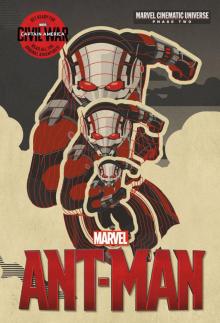 Marvel's Ant-Man - Phase Two
Marvel's Ant-Man - Phase Two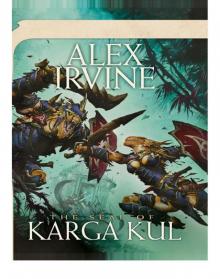 The seal of Karga Kul (dungeons and dragons)
The seal of Karga Kul (dungeons and dragons)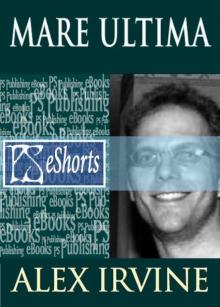 Mare Ultima
Mare Ultima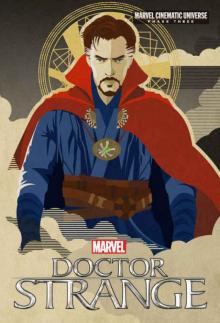 Phase Three: MARVEL's Doctor Strange
Phase Three: MARVEL's Doctor Strange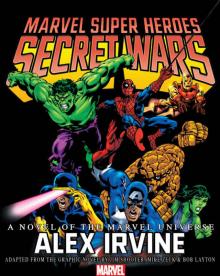 MARVEL SUPER HEROES SECRET WARS
MARVEL SUPER HEROES SECRET WARS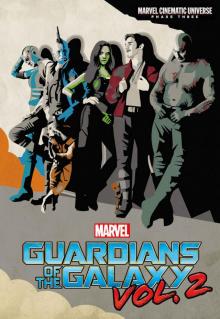 Phase Three: MARVEL's Guardians of the Galaxy Vol. 2
Phase Three: MARVEL's Guardians of the Galaxy Vol. 2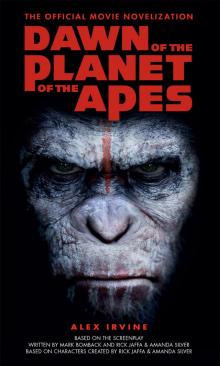 Dawn of the Planet of the Apes
Dawn of the Planet of the Apes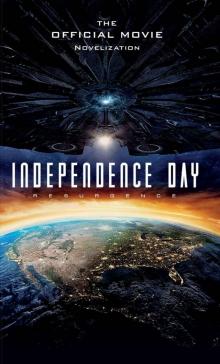 Independence Day: Resurgence: The Official Movie Novelization
Independence Day: Resurgence: The Official Movie Novelization